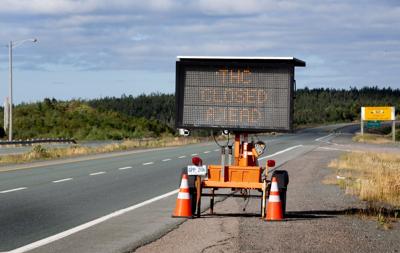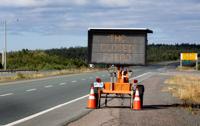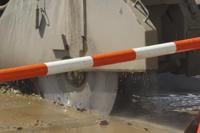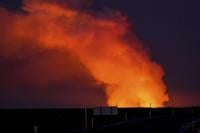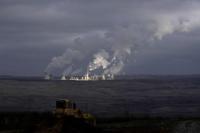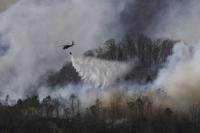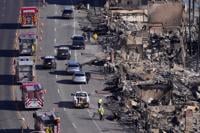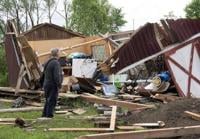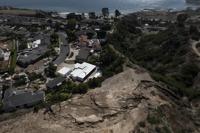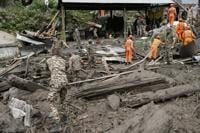HALIFAX - As climate change continues to raise the risk of extreme wildfires, a debate has arisen over who bears the responsibility to prevent disasters: government or individuals?
Wildfires have been raging across Canada all summer, including in the Atlantic region that hasn’t historically seen as many fires as the rest of the country, prompting restrictions that aim to reduce risk of human-caused ignition.
In Nova Scotia and New Brunswick, last week provincial governments banned hiking, fishing and using vehicles in the woods in addition to their existing bans on open fires. Both provinces are actively battling multiple blazes.
Their provincial governments have received a flood of feedback from people expressing confusion and frustration, and some have claimed the restrictions represent an infringement on their personal freedoms.
Jennifer Baltzer, a Wilfrid Laurier University biology professor and Canada Research Chair in forests and global change who is from Nova Scotia’s Annapolis Valley, said it’s reasonable to expect these sorts of government-imposed restrictions as climate change results in hotter and dryer summers.
“As we experience conditions on the ground that are riskier… people are going to have to modify their behaviour to help mitigate potential accidental ignitions,” she said in an interview Thursday.
However, Baltzer said governments have a lot of work to do to tackle the root cause of the worsening fire seasons: climate change.
“We really need to be implementing much stronger climate change mitigation policies than governments currently are. Because that's ultimately the solution to this,” she said.
A day after the Nova Scotia restrictions were implemented, Halifax-based Ecology Action Centre criticized the ban and called on the province to address wildfire risk by making long-term investments in sustainable forestry management and climate adaptation, along with ramping up funding for local fire services.
“Serious moments demand thoughtful, long-term responses — not blunt tools and heavy-handed bans,” reads the statement shared on social media.
“This ban is a poor mechanism for addressing the underlying problem of dry, dangerous conditions. It leaves Nova Scotians wondering: is this what we should expect now? Will growing drought risk mean fewer and fewer opportunities to access and enjoy nature?”
A follow-up statement from the centre said the province needs to ensure local fire services, which are largely volunteer-based in Nova Scotia, have adequate funding and up-to-date gear.
The Ecology Action Centre said no one was available to be interviewed Wednesday and Thursday.
The centre’s executive director Maggy Burns said in an emailed statement hot and dry conditions are a reality that is not going away, and it may be necessary to restrict activity to keep communities safe.
“But Nova Scotians deserve an evidence-backed, long-term and clearly communicated plan to address the climate emergency, including wildfire,” she said Thursday.
Speaking to reporters Wednesday in Ottawa, Alberta Conservative MP Michelle Rempel Garner criticized the restrictions in New Brunswick and Nova Scotia while accusing Ottawa of "inaction" on wildfires.
Rempel Garner said that while she understands the fear Maritimers feel, restricting individuals' movements is "not right."
"Whenever there's a major crisis, what the Liberal government has done by their inaction has conditioned şĂÉ«tvs to expect that the only response they can see out of their federal government is to restrict their movement," Rempel Garner told reporters. Both restrictions were implemented by provincial governments.
Nova Scotia Premier Tim Houston brushed off the criticisms at a press conference later Wednesday.
"I find it remarkable, the interest in travelling in Nova Scotia woods by people who aren't in Nova Scotia and probably haven't been here much in their life," Houston told reporters.
"We're only concerned with keeping people safe. We'll do what's necessary to protect lives, and that's what we're doing in this case."
Baltzer said Atlantic şĂÉ«tvs may have to get used to such precautions, while considering ways they can reduce wildfire risk around their homes. This can include removing flammable materials or thinning out some forested areas.
"I think some of these things aren’t probably such a hot of a topic (in Atlantic Canada) compared to Western Canada where fire regularly comes through the system… but I think across the country we can expect wildfire to become a more important issue that we're all going to have to be dealing with as the climate warms and dries," she said.
"It’s going to require both really strong policy action on the part of governments to mitigate climate change as fast as possible, and also on the community level, some personal action to help minimize risk."
This report by şĂÉ«tvwas first published Aug. 15, 2025.

